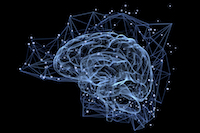Knowledge retention in capstone experiences: An analysis of online and face-to-face courses
This research chronicles the development of a capstone experience by a regional comprehensive university. The process began with a multi-year project during which the faculty annually reviewed the results with a view to determining if the class provided the deep learning culminating experiences anticipated. A major measure of success was the desire to replicate the deep learning common in face-to-face classes in the online environment. The results of 166 students were analyzed, 82 online and 84 face-to-face, to determine if a difference existed. A one-way ANOVA tested the score differences among 10 sections and determined the students’ scores did not differ significantly. Finally, a two-sample t-test between proportions determined that there was not a significant difference between the online and face-to-face students with respect to the level of assessment scores earned. Given that online and face-to-face students demonstrate the same level of knowledge, does this beg the question, what value does face-to-face class time offer?








